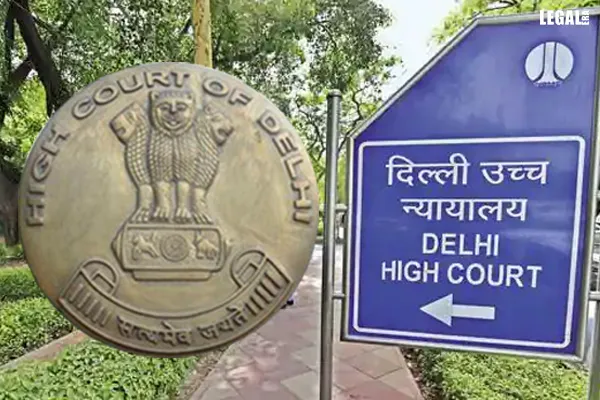Delhi High Court: For grant of damages under the Contract Act, the damages suffered must be proved
The Delhi High Court while dealing adjudicating a suit for recovery, observed that for grant of damages in terms of Section;

Delhi High Court: For grant of damages under the Contract Act, the damages suffered must be proved
The Delhi High Court while dealing adjudicating a suit for recovery, observed that for grant of damages in terms of Section 73 of the Indian Contract Act, 1972, not only breach of contract but the losses/damages suffered must be proven by an aggrieved person.
The single judge Justice Vikas Mahajan further stated that the Code of Civil Procedure, 1908 (CPC) expressly required pleadings to be specific and provided that the allegations of fact in the plaint which were not denied specifically or by necessary implication should be taken to be admitted by the appellant-defendant.
An appeal had been filed seeking to set aside the order passed by the Trial Court which had decreed the suit for recovery, filed by the respondent-plaintiff amounting to Rs. 19,12,080 along with interest (simple interest) @ 12% per annum from the date of filing of the suit till its realization along with cost of the suit.
The appellant-defendant claimed to be engaged in business of providing Job Guaranteed Courses in the field of Computer Hardware Education and networking along with franchise services for consideration.
The respondent-plaintiff after gaining knowledge of the said franchise service being offered and being interested in setting up of such a franchise, contacted the appellant-defendant.
The respondent-plaintiff was earlier running an institute for English speaking courses named ‘Achievers Point’ which the appellant-defendant never objected to before, but later raised an objection to the running of the said institute after collecting the franchise fee/money.
Due to the said objection, the respondent-plaintiff had to close down the said institute and the sum of Rs. 75,000/- which was stated to be given as franchise fee for running the institute ‘Achievers Point’, had also been claimed in the suit.
The appellant’s-defendants case was that the respondent-plaintiff avoided entering into an agreement after receiving full amount of franchise fee.
Further vide its letter dated 22 May, 2009, the appellant-defendant withdrew the job/placement guarantee offered by it and deducted the royalty from the above said excess amount of Rs. 54,766 paid towards equipment/start up kits etc.
In view of the aforesaid, the primary issue that was determined by the Court was whether the plaintiff was entitled for recovery along with interest as prayed for?
The Court noted that it was not in dispute that the respondent-plaintiff had paid full franchise fee and had invested in books/kits/equipment and other infrastructure and he had even closed his earlier institute by the name of ‘Achievers Point’, therefore, he would not stand to gain anything by not entering into the agreement, rather it stood proven that the appellant-defendant had failed to provide backup support and other services as per the agreed terms.
Therefore, the Court opined that the closure of the respondent’s-plaintiff center by the appellant-defendant was not justified under any circumstance.
It was further noted by the bench that the franchise was for a period of three years commencing from October, 2008. The breach of agreed terms by the defendant and the closure of the center of the plaintiff by the defendant just after period of seven months without any tenable reason, had evidently caused loss of franchise fee to the plaintiff, and thus the defendant was liable to make good the said loss by refunding the amount of franchise fee of Rs. 3,37,080/- to the plaintiff, stated the judge.
The Court observed that for grant of damages in terms of Section 73 of the Indian Contract Act, 1972, not only breach of contract but the losses/damages suffered were also required to be proved by an aggrieved person. Therefore, the question of refund of the franchise fee would depend on the question as to whether the appellant-defendant had committed the breach of contract entered into with the respondent-plaintiff and whether such breach had caused any loss or damage to the respondent-plaintiff.
The Court further stated that the Code of Civil Procedure expressly required pleadings to be specific and provided that the allegations of fact in the plaint which was not denied specifically or by necessary implication should be taken to be admitted by the appellant-defendant.
The Court avowed, “Order VIII Rules 3, 4 and 5 provide that the defendant in his written statement must deal specifically with each allegation of fact of which he does not admit the truth, and where a defendant denies an allegation of the fact in the plaint, he must not do so evasively, but answer the point of substance. Further, every allegation of the fact in the plaint if not denied specifically or by necessary implication, or stated to be not admitted in the pleading of the defendant, shall be taken to be admitted.”
Consequently, the Court held that respondent-plaintiff was entitled to total amount of Rs. 13,09,080/- along with simple interest @12% per annum from the date of filing of the suit till its realization along with cost of the suit. The appeal was thus, partly allowed and the decree was modified.

